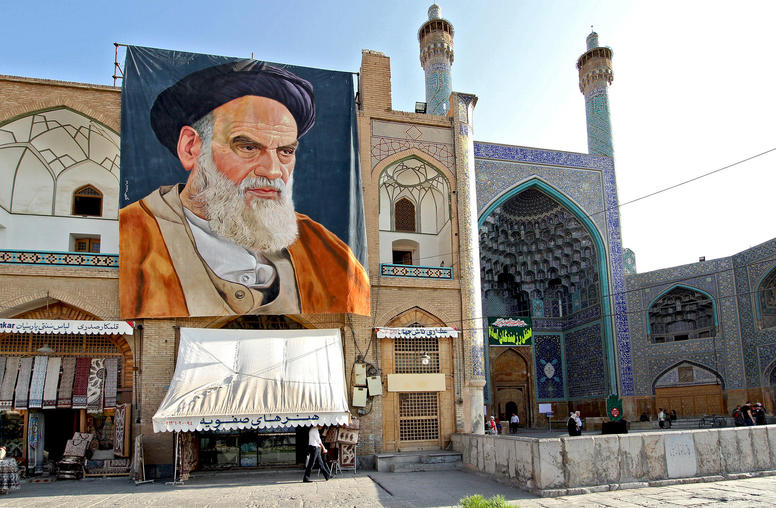 Iran
Iran
Iran has been a conundrum since its 1979 revolution. It stunned the world by introducing Islam as a form of modern governance, and rattled the region by exporting its zealous ideology. It supported militant allies and challenged international norms. For decades, dealing with the Islamic Republic was complicated by internal repression, menacing rhetoric, and defiance over its nuclear program. USIP conducts research and policy analysis on Iran, and Institute experts regularly brief Congressional staff and U.S. officials.
Learn more in USIP’s fact sheet on The Current Situation in Iran. For a comprehensive website on Iran providing timely analysis by American and Iranian scholars, see The Iran Primer, hosted by USIP.
Iran Timeline: Since the 1979 Revolution
Featured Publications

Israel-Hezbollah Contained Escalation Halts Concern Over Broader Mideast War
For weeks, concerns over the risk of miscalculation or even intentional escalation between Israel and Hezbollah have dominated attention. Ramped up cross-border attacks between the two sides on Sunday, August 25 have left each side simultaneously claiming success “for now,” suggesting a much-feared larger conflagration may have been averted in the near term. However, implications for longer-term risk and mutual deterrence, Iran’s calculations for escalation, and linkage to the still-elusive Gaza cease-fire remain uncertain.

What the Houthi-Israel Exchange Might Mean for Escalation in the Middle East
The Middle East saw yet another escalatory episode over the weekend, as Israel and Yemen’s Houthis exchanged fire. On July 19, the Iran-backed Houthis launched an unprecedented drone attack on Israel, which hit an apartment building in downtown Tel Aviv, killing one and injuring at least 10 others. It was the first time that the Houthis killed or even harmed an Israeli, despite launching dozens of missile attacks on Israel since October 7. The next day, Israel struck back with an airstrike on the strategic port of Hodeida, marking the first time it attacked Yemen. The Israeli attack killed six, injured dozens more and left ablaze key oil facilities in the area.

Robin Wright on What to Expect from Iran’s New President
The election of reformist candidate Masoud Pezeshkian as Iran’s new president dealt a “stunning blow in many ways to the hardliners,” says USIP’s Robin Wright. However, “the hardliners still have control of the legislature and the judiciary, and they can create havoc for the new president” and his agenda.
Current Projects

The Iran Primer
In 2010, USIP and the Woodrow Wilson Center launched “The Iran Primer”—an original book and regularly updated website—to provide resources and education about Iran, which has been one of the thorniest foreign policy issues for the United States since 1979. The website continues to cover Iran’s domestic politics and foreign relations, the economy, the military, its nuclear and missile programs, and U.S. policy. The project’s goal is to help develop a better understanding of the challenges Iran poses and reduce the likelihood of violent conflict. Featuring book chapters and articles by more than 80 leading experts from 20 think tanks, eight universities, and six U.S. administrations, it has become the world’s most comprehensive source for data and analysis on the Islamic Republic of Iran.